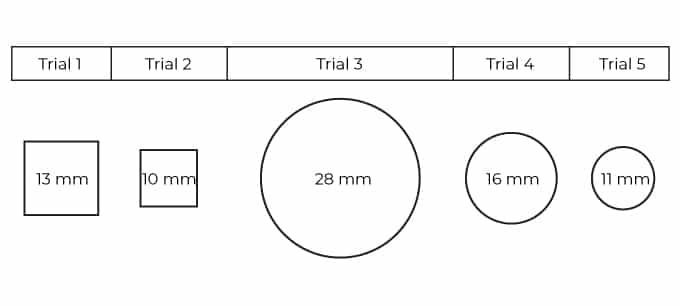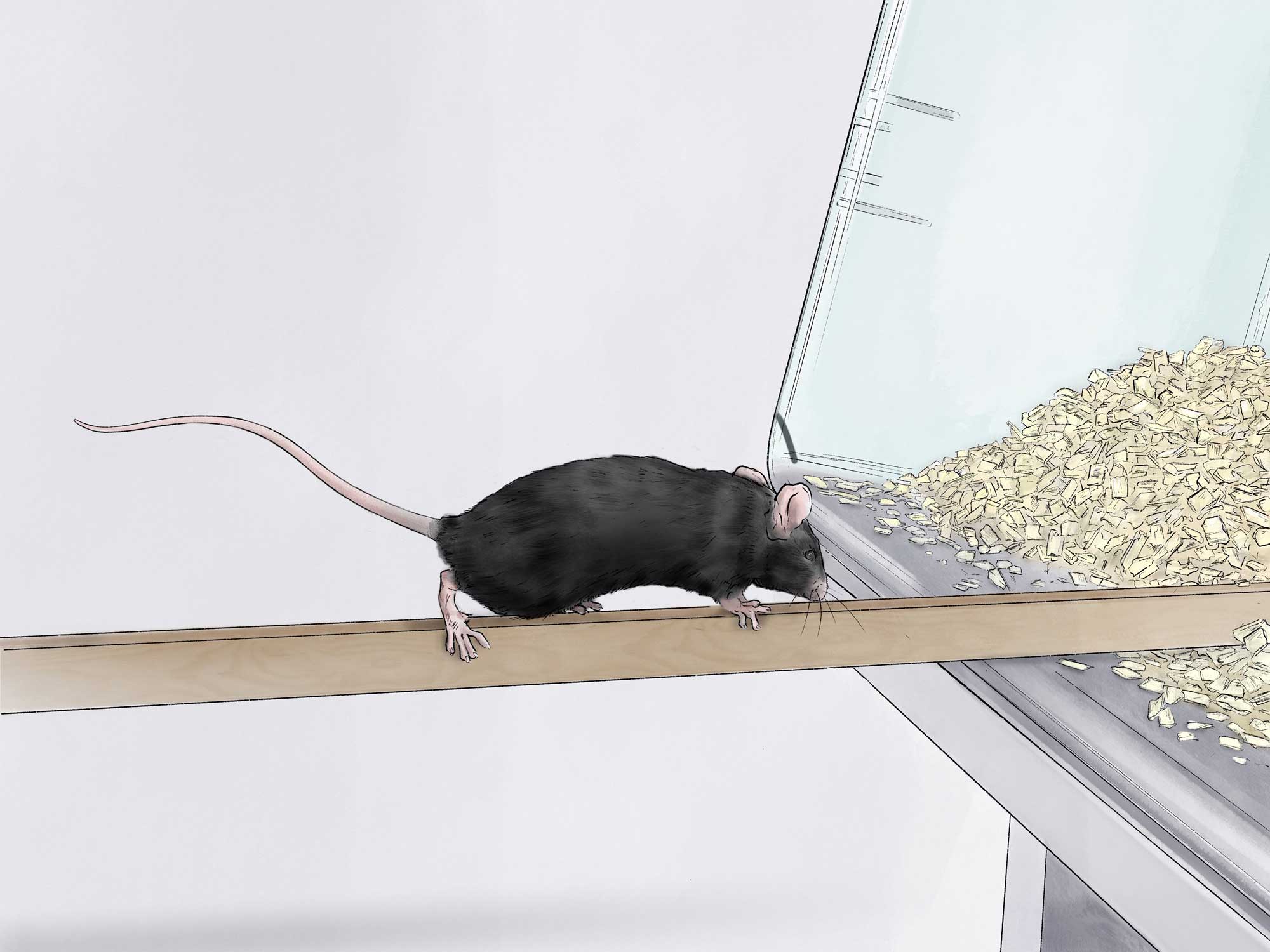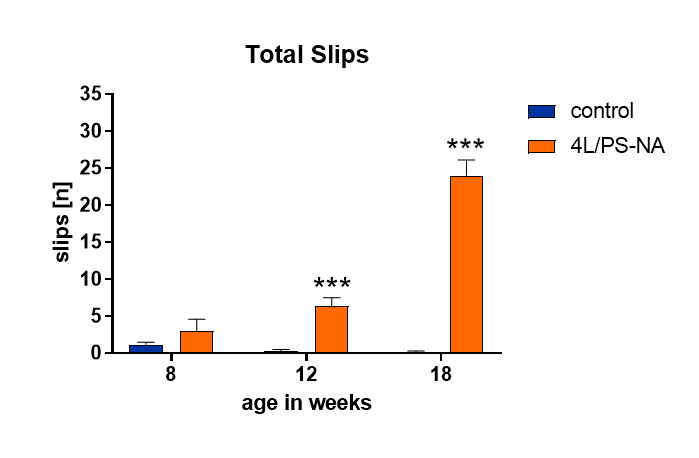The beam walk test is a popular test for analyzing mice´s gait in an environment that challenges their ability to balance themselves. It employs a series of five narrow beams to walk across to assess their motor coordination and balance. The 1-meter-long beams are placed horizontally, 0.5 meter above the surface, with one end mounted on a narrow support and the other end attached to the home cage in which the mouse can escape. A light spot is positioned above the starting point to motivate mice to walk to their home cages. Animals undergo three training trials on a training beam with three different starting points: close to the home cage, in the center of the beam, and at the brightly illuminated end of the beam. Once the training is complete, mice are subjected to five consecutive testing trials, one on each beam. Difficulty increases with every trial. The testing trials are videotaped and afterward evaluated. The latency to traverse each beam, active time, and the number of slips off each beam are recorded

Figure 1: Schematic illustration of beam sizes for trial 1 to 5.

In models with a severe motor phenotype, e.g., NPC1 or 4L/PS-NA mice, it is advisable to use only the first two beams as animals generally cannot cross the round beams.
The beam walk test is commonly used to test candidate compounds that are aimed to attenuate the motor phenotype in mouse models of Parkinson´s disease, Huntington disease, Niemann-Pick disease, Gaucher disease, Pompe disease, Amyotrophic Lateral Sclerosis, and others. The test is very sensitive, already detecting subtle gait deficits that might not be detectable in other tests, such as RotaRod, wire suspension, and grip strength and is thus often used in combination with them. Moreover, the beam walk test can be employed in addition to cognitive, anxiety and depression tests to exclude potential confounding effects of motor impairments.

Figure 2: Beam Walk test of 4L/PS-NA mice. Number of total slips of 4L/PS-NA and control littermates monitored over age. n = 7 per group. Two-way ANOVA with Bonferroni’s post hoc test; Mean + SEM; ***p<0.001.
